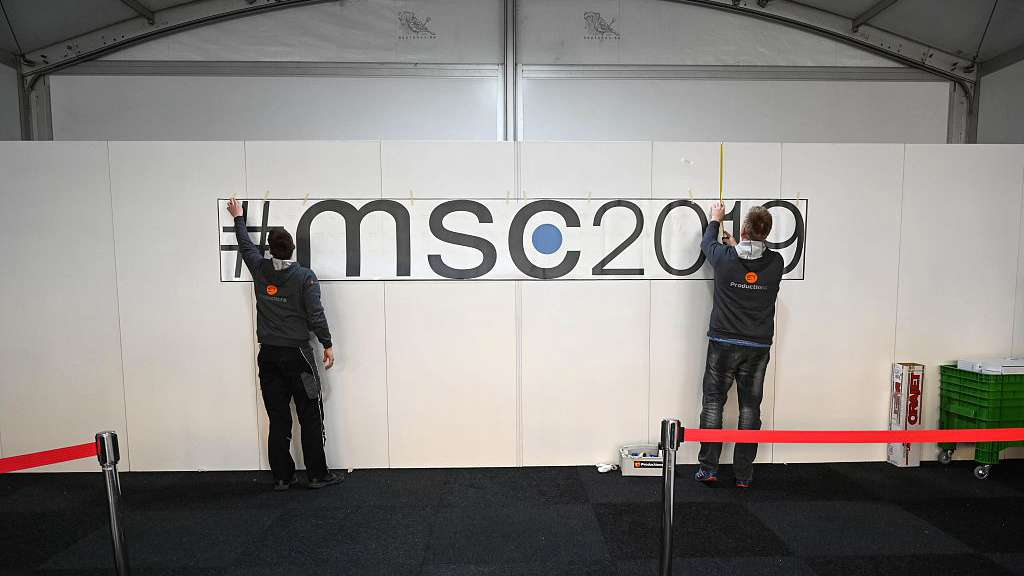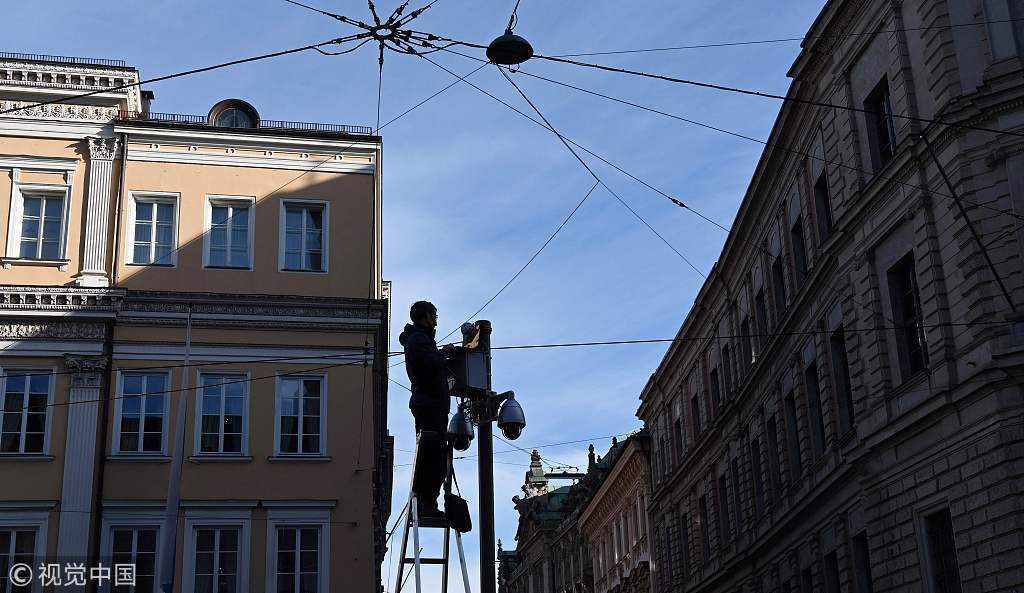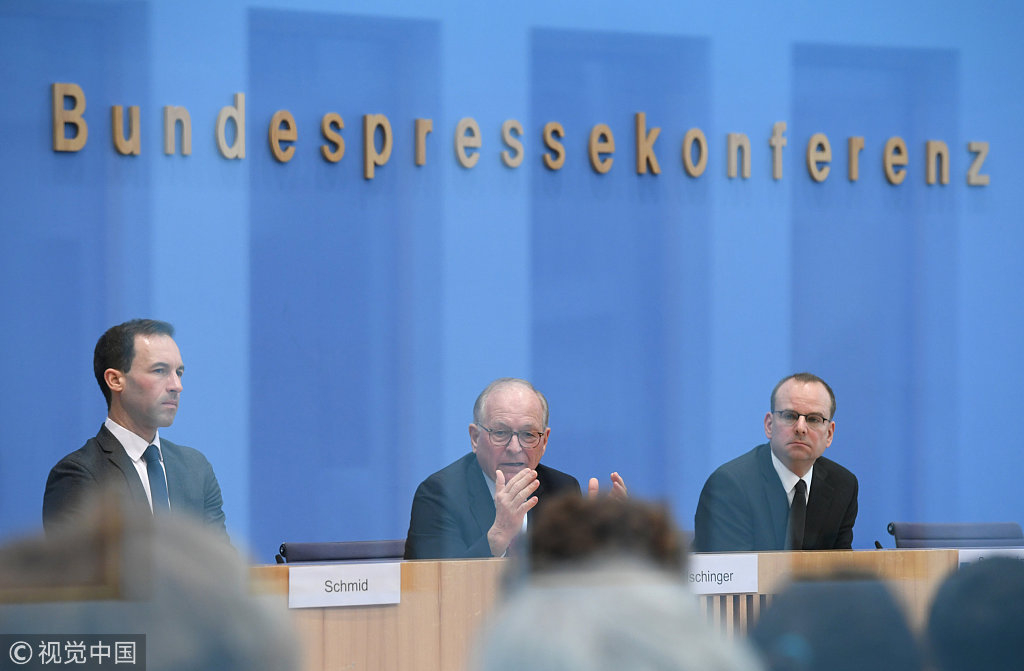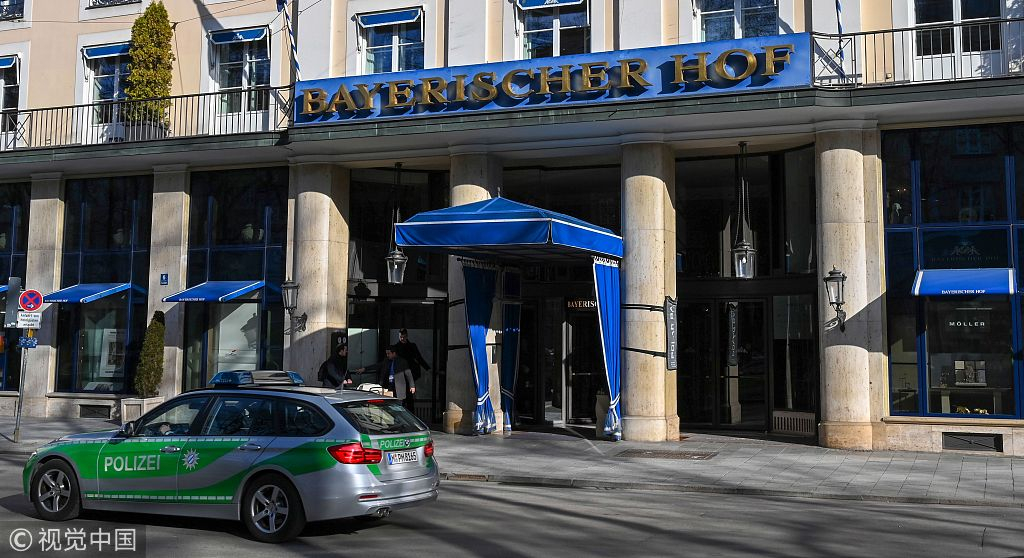
Opinion
08:15, 15-Feb-2019
Can the Munich Security Conference save the INF Treaty?
James Rae

Editor's note: James Rae is a Fulbright visiting scholar at Beijing Foreign Studies University. The article reflects the author's opinion, and not necessarily the views of CGTN.
The Munich Security Conference is the premier gathering of leaders and decision-makers from around the world brought together to address contemporary security issues and threats to global stability. Like the past several conferences, this one is being held in a period of creeping power transition with the growth of China's military might, and against the backdrop of strained relations between Russia and the West, especially the United States.
Direct talks between Russia and the United States began as early as the 1970s and dramatically brought the two superpowers into bilateral arms control arrangements that culminated in the mid-1980s. One of the signature achievements of the Reagan-Gorbachev nuclear diplomacy was the Intermediate Range Nuclear Forces (INF) Treaty.
At that time, the number of nuclear weapons in the world had peaked at around 70,000. Over the next decade, arsenals were greatly reduced as were tensions between those two great superpowers.

A technician checks out security cameras outside the hotel "Bayerischer Hof," the venue where the meetings of the 55th Munich Security Conference will take place in Munich, Germany, February 14, 2019. /VCG Photo.
A technician checks out security cameras outside the hotel "Bayerischer Hof," the venue where the meetings of the 55th Munich Security Conference will take place in Munich, Germany, February 14, 2019. /VCG Photo.
However, major powers are resuming their desire to build the world's most dangerous weapons and the past two decades have witnessed the unraveling of several of these key accomplishments. The web of multilateral efforts to lessen mutual insecurity is commensurately imperiled. The most recent collapsing piece of the security architecture is the INF accord.
Why do we find ourselves back in the same predicament with growing anxiety globally about the pathway we are on? One factor is technological change and its impact on strategic thinking and the logic of the security dilemma; another is the current priorities of great powers and the related mistrust between those actors.
American investment in a missile defense shield, aka theater missile defense, was a game changer. The American security umbrella grew more firm as the technology began to come online in the early 2000s and was deployed first to Eastern Europe before its expansion and adjustment elsewhere in highly contested hot zones like the Korean Peninsula.

Munich Security Conference (MSC) Chairman Wolfgang Ischinger presents the Munich Security Report for 2019 in Berlin, Germany, February 11, 2019. /VCG Photo.
Munich Security Conference (MSC) Chairman Wolfgang Ischinger presents the Munich Security Report for 2019 in Berlin, Germany, February 11, 2019. /VCG Photo.
This detrimentally impacted Russian and Chinese first strike capabilities in an imagined nuclear exchange, fostering insecurity. As part of this process, George W. Bush withdrew from the Anti-Ballistic Missile (ABM) Treaty in 2002 and now in 2019 Donald Trump has left the INF Treaty.

A police car sits outside the hotel "Bayerischer Hof," the venue where the meetings of the 55th Munich Security Conference will take place in Munich, Germany, February 14, 2019. /VCG Photo.
A police car sits outside the hotel "Bayerischer Hof," the venue where the meetings of the 55th Munich Security Conference will take place in Munich, Germany, February 14, 2019. /VCG Photo.
These decisions have accelerated Russian investment in counter-measures and advanced offensive weaponry such as its new ground-launched cruise missiles. Despite the unexplained cordial relations between Trump and President Vladimir Putin, a new arms race is accelerating the demise of Russo-American ties.
Groups like the International Campaign to Abolish Nuclear Weapons represent a widespread effort to seek nuclear disarmament, and both ex-Soviet president Mikhail Gorbachev and former Reagan era secretary of state George Schultz lament the collapsing commitment in Russia and the United States to maintain hard-won treaty obligations to reduce nuclear weapons.
Yet no one should expect to save the INF Treaty. Putin and Trump are not attending. From afar, Putin perceives Russia's vulnerability to American assertiveness bolstered by its expanding missile shield.
All of Trump's foreign policy team has been replaced in the past year, and Vice President Pence arrives with an interim defense secretary. Moreover, President Trump's personal fascination with expanding nuclear weapons and his transformed national security team led by John Bolton and Mike Pompeo are only too willing to take advantage of this emphasis and ratchet up pressure on Russia and China through a major arms buildup.
Likewise, Yang Jiechi is in attendance to represent China, but not President Xi, thus none of the three major figures of the great powers is there to initiate confidence-building measures. Without the realist emphasis on strategic deterrence or liberal hopes of engagement, the current military asymmetry is encouraging aggressive policies in both Russia and the United States.
(If you want to contribute and have specific expertise, please contact us at opinions@cgtn.com.)

SITEMAP
Copyright © 2018 CGTN. Beijing ICP prepared NO.16065310-3
Copyright © 2018 CGTN. Beijing ICP prepared NO.16065310-3